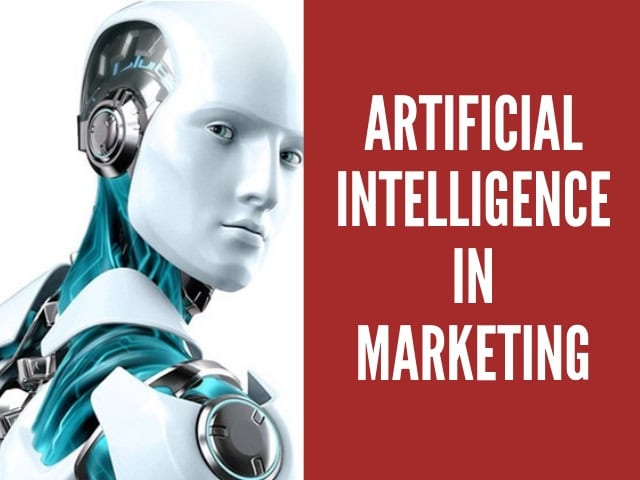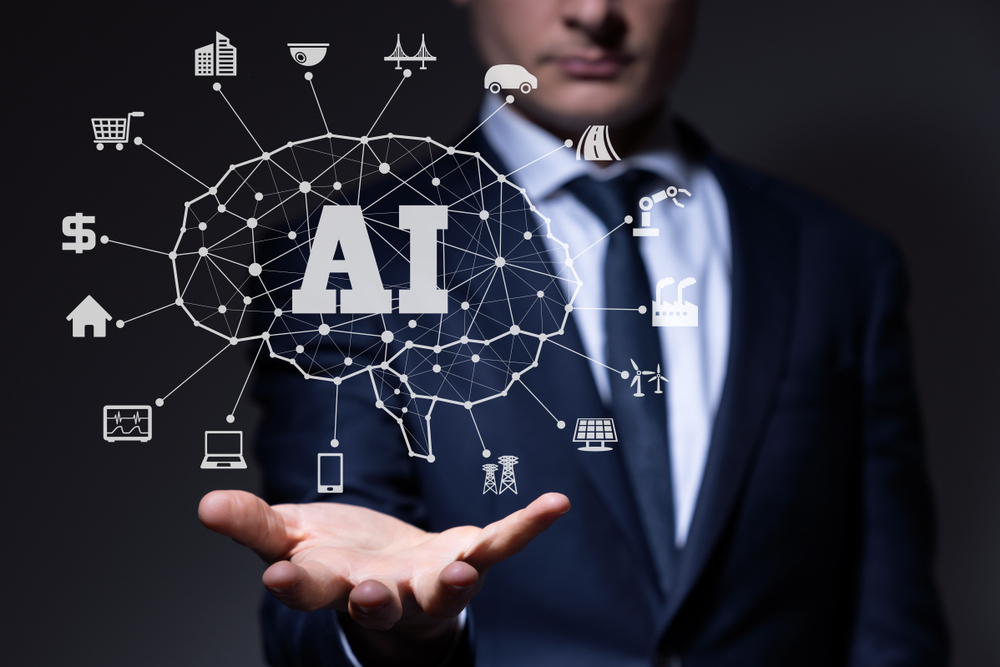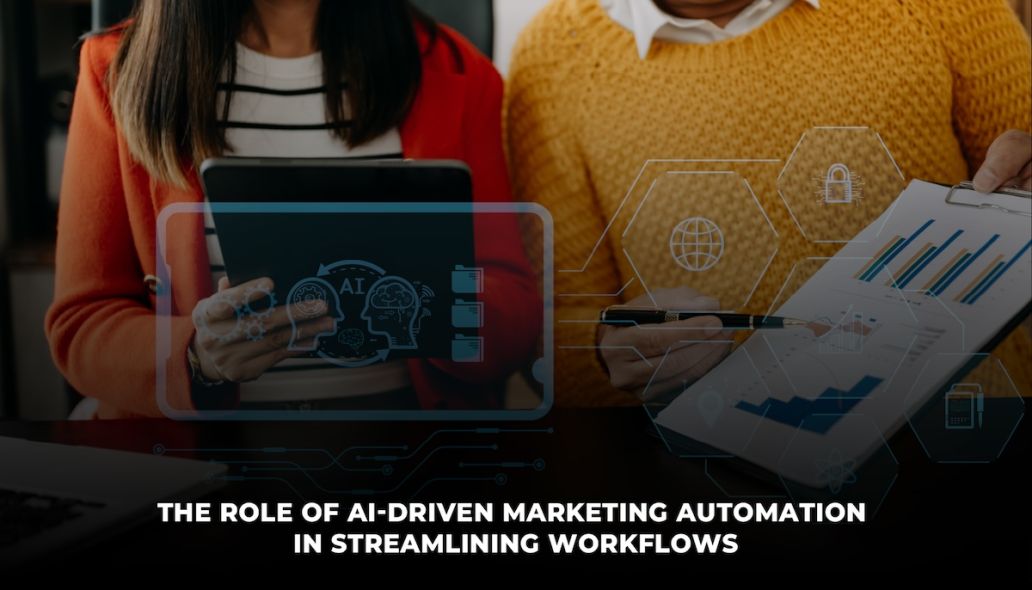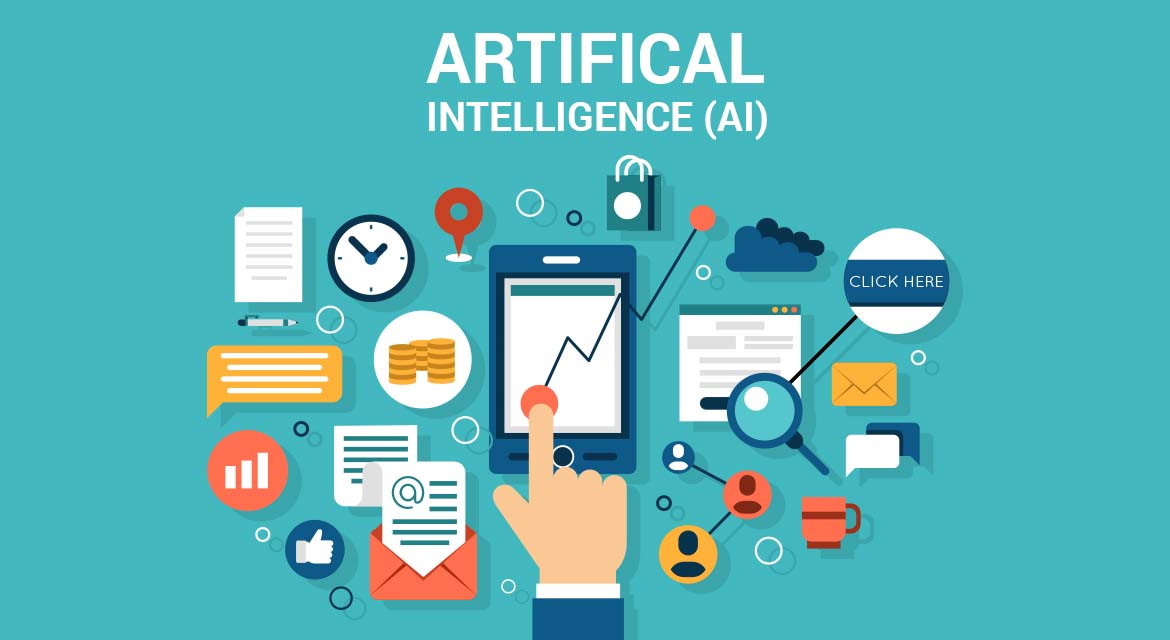Unlocking the Potential of Artificial Intelligence in Marketing
Artificial intelligence (AI) is revolutionizing the marketing landscape, and SaaS startups are at the forefront of this transformation. By leveraging AI-powered marketing automation, businesses can enhance customer experiences, improve efficiency, and increase revenue. AI-powered SaaS solutions are designed to analyze vast amounts of data, identify patterns, and make predictions, enabling marketers to create personalized and targeted campaigns.
The integration of AI in marketing automation has numerous benefits. For instance, AI-powered chatbots can provide 24/7 customer support, helping to improve customer satisfaction and reduce support queries. Additionally, AI-driven predictive analytics can help marketers identify high-value leads, enabling them to focus their efforts on the most promising prospects.
AI-powered marketing automation also enables businesses to automate repetitive tasks, freeing up marketers to focus on strategic and creative work. By automating tasks such as email marketing, social media management, and lead scoring, marketers can reduce the risk of human error and increase productivity.
Furthermore, AI-powered SaaS solutions can help businesses to better understand their customers. By analyzing customer data and behavior, AI algorithms can identify patterns and preferences, enabling marketers to create targeted and personalized campaigns. This can lead to increased customer engagement, improved conversion rates, and enhanced customer loyalty.
As the marketing landscape continues to evolve, it’s essential for SaaS startups to stay ahead of the curve. By embracing AI-powered marketing automation, businesses can gain a competitive edge, improve efficiency, and drive revenue growth. With the potential to transform the marketing landscape, AI-powered SaaS solutions are an exciting development for SaaS startups and marketers alike.
How to Leverage AI-Driven Marketing Automation for Business Growth
To successfully implement AI-powered marketing automation, SaaS startups must follow a strategic approach. The first step is to select the right SaaS solution that aligns with the business’s marketing goals and objectives. This involves evaluating the features, pricing, and scalability of various AI-powered marketing automation tools, such as Marketo, Pardot, and HubSpot.
Once the right SaaS solution is selected, the next step is to integrate AI with existing marketing tools and systems. This may involve integrating AI-powered chatbots with customer relationship management (CRM) systems, or connecting AI-driven predictive analytics with marketing automation platforms. By integrating AI with existing marketing tools, businesses can create a seamless and efficient marketing ecosystem.
After integrating AI with existing marketing tools, the next step is to measure the effectiveness of AI-driven campaigns. This involves tracking key performance indicators (KPIs) such as conversion rates, customer lifetime value, and return on investment (ROI). By measuring the effectiveness of AI-driven campaigns, businesses can identify areas for improvement and optimize their marketing strategies.
To optimize AI-driven campaigns, businesses must also train machine learning algorithms to analyze customer data and behavior. This involves feeding machine learning algorithms with high-quality data, such as customer demographics, behavior, and preferences. By training machine learning algorithms to analyze customer data, businesses can create personalized and targeted marketing campaigns that drive engagement and conversion.
In addition to training machine learning algorithms, businesses must also ensure that their AI-powered marketing automation systems are transparent and explainable. This involves providing clear and concise explanations of how AI algorithms make decisions, and ensuring that AI systems are fair and unbiased. By ensuring transparency and explainability, businesses can build trust with their customers and maintain a positive brand reputation.
Finally, businesses must continuously monitor and evaluate the performance of their AI-powered marketing automation systems. This involves tracking KPIs, analyzing customer feedback, and identifying areas for improvement. By continuously monitoring and evaluating the performance of AI-powered marketing automation systems, businesses can optimize their marketing strategies and drive business growth.
The Role of Machine Learning in Marketing Automation
Machine learning is a crucial component of AI-powered marketing automation, enabling businesses to analyze vast amounts of data and make predictions about customer behavior. By applying machine learning algorithms to customer data, businesses can identify patterns and trends that inform marketing strategies and optimize campaigns.
One of the primary applications of machine learning in marketing automation is predictive analytics. By analyzing customer data, machine learning algorithms can predict which customers are most likely to convert, allowing businesses to target their marketing efforts more effectively. Additionally, machine learning can be used to predict customer churn, enabling businesses to proactively address potential issues and retain valuable customers.
Machine learning is also used in lead scoring, a critical component of marketing automation. By analyzing customer behavior and demographic data, machine learning algorithms can assign a score to each lead, indicating their likelihood of converting. This enables businesses to prioritize their marketing efforts and focus on the most promising leads.
Personalized customer engagement is another key application of machine learning in marketing automation. By analyzing customer data and behavior, machine learning algorithms can create personalized marketing messages and recommendations that resonate with individual customers. This enables businesses to build stronger relationships with their customers and drive engagement and conversion.
Training machine learning algorithms is a critical step in marketing automation. This involves feeding the algorithms with high-quality data, such as customer demographics, behavior, and preferences. By training machine learning algorithms to analyze customer data, businesses can create more accurate predictions and optimize their marketing campaigns.
There are several types of machine learning algorithms used in marketing automation, including supervised, unsupervised, and reinforcement learning. Supervised learning involves training algorithms on labeled data, while unsupervised learning involves training algorithms on unlabeled data. Reinforcement learning involves training algorithms through trial and error, using rewards and penalties to optimize performance.
By leveraging machine learning in marketing automation, businesses can gain a competitive edge and drive revenue growth. By analyzing customer data and behavior, machine learning algorithms can inform marketing strategies and optimize campaigns, enabling businesses to achieve their marketing goals more effectively.
Top AI-Powered Marketing Automation Tools for SaaS Startups
When it comes to selecting the right AI-powered marketing automation tool for a SaaS startup, there are several options to consider. Some of the top tools in this space include Marketo, Pardot, and HubSpot. Each of these tools offers a range of features and functionalities that can help SaaS startups to automate and optimize their marketing efforts.
Marketo is a popular marketing automation tool that offers a range of features, including email marketing, lead scoring, and predictive analytics. Marketo is well-suited for SaaS startups that are looking for a comprehensive marketing automation solution that can help them to drive revenue growth.
Pardot is another popular marketing automation tool that offers a range of features, including email marketing, lead scoring, and social media marketing. Pardot is well-suited for SaaS startups that are looking for a tool that can help them to automate and optimize their marketing efforts across multiple channels.
HubSpot is a comprehensive marketing automation tool that offers a range of features, including email marketing, lead scoring, and predictive analytics. HubSpot is well-suited for SaaS startups that are looking for a tool that can help them to drive revenue growth and optimize their marketing efforts.
In addition to these tools, there are several other AI-powered marketing automation tools that SaaS startups can consider. Some of these tools include Salesforce, Infusionsoft, and ActiveCampaign. Each of these tools offers a range of features and functionalities that can help SaaS startups to automate and optimize their marketing efforts.
When selecting an AI-powered marketing automation tool, SaaS startups should consider several factors, including the tool’s features and functionalities, its ease of use, and its scalability. They should also consider the tool’s pricing and its suitability for their specific business needs.
Real-life examples of successful implementations of AI-powered marketing automation tools include companies such as LinkedIn, which used Marketo to automate and optimize its marketing efforts, and HubSpot, which used its own platform to drive revenue growth and optimize its marketing efforts.
By selecting the right AI-powered marketing automation tool, SaaS startups can automate and optimize their marketing efforts, drive revenue growth, and stay ahead in the competitive marketing landscape.
Overcoming Common Challenges in AI-Driven Marketing Automation
While AI-powered marketing automation offers numerous benefits for SaaS startups, there are also several common challenges that can arise during implementation. One of the most significant challenges is data quality issues, which can impact the accuracy and effectiveness of AI-driven marketing campaigns.
To overcome data quality issues, SaaS startups can implement data validation and cleansing processes to ensure that their data is accurate and consistent. They can also use data enrichment tools to enhance their data and improve the accuracy of their AI-driven marketing campaigns.
Another common challenge faced by SaaS startups is integration complexities, which can arise when integrating AI-powered marketing automation tools with existing marketing systems and tools. To overcome this challenge, SaaS startups can use integration platforms and APIs to connect their AI-powered marketing automation tools with their existing marketing systems and tools.
Talent acquisition is another common challenge faced by SaaS startups when implementing AI-powered marketing automation. To overcome this challenge, SaaS startups can invest in training and development programs to upskill their existing marketing teams and attract new talent with expertise in AI-powered marketing automation.
Additionally, SaaS startups can also face challenges related to scalability and flexibility when implementing AI-powered marketing automation. To overcome these challenges, SaaS startups can use cloud-based AI-powered marketing automation tools that offer scalability and flexibility, and can be easily integrated with their existing marketing systems and tools.
Finally, SaaS startups can also face challenges related to transparency and explainability when implementing AI-powered marketing automation. To overcome these challenges, SaaS startups can use AI-powered marketing automation tools that offer transparent and explainable AI models, and can provide clear insights into how AI-driven marketing decisions are made.
By overcoming these common challenges, SaaS startups can successfully implement AI-powered marketing automation and achieve their marketing goals. It is essential for SaaS startups to be aware of these challenges and to have a clear plan in place to overcome them.
Measuring the Success of AI-Powered Marketing Automation
Measuring the success of AI-powered marketing automation campaigns is crucial for SaaS startups to understand the effectiveness of their marketing efforts and make data-driven decisions. There are several metrics that can be used to measure the success of AI-powered marketing automation campaigns, including conversion rates, customer lifetime value, and return on investment.
Conversion rates are a key metric for measuring the success of AI-powered marketing automation campaigns. This metric measures the percentage of leads that convert into customers, and can be used to evaluate the effectiveness of AI-driven marketing campaigns. By tracking conversion rates, SaaS startups can identify areas for improvement and optimize their marketing campaigns to increase conversions.
Customer lifetime value (CLV) is another important metric for measuring the success of AI-powered marketing automation campaigns. This metric measures the total value of a customer over their lifetime, and can be used to evaluate the effectiveness of AI-driven marketing campaigns. By tracking CLV, SaaS startups can identify high-value customers and tailor their marketing efforts to retain and upsell these customers.
Return on investment (ROI) is a key metric for measuring the success of AI-powered marketing automation campaigns. This metric measures the return on investment of marketing campaigns, and can be used to evaluate the effectiveness of AI-driven marketing campaigns. By tracking ROI, SaaS startups can identify areas for improvement and optimize their marketing campaigns to increase returns.
To measure the success of AI-powered marketing automation campaigns, SaaS startups can use a variety of tools and techniques, including marketing automation platforms, analytics software, and data visualization tools. By using these tools and techniques, SaaS startups can gain insights into the effectiveness of their marketing efforts and make data-driven decisions to optimize their marketing campaigns.
In addition to these metrics, SaaS startups can also use other metrics such as click-through rates, open rates, and bounce rates to measure the success of their AI-powered marketing automation campaigns. By tracking these metrics, SaaS startups can gain a comprehensive understanding of the effectiveness of their marketing efforts and make data-driven decisions to optimize their marketing campaigns.
By measuring the success of AI-powered marketing automation campaigns, SaaS startups can optimize their marketing efforts, increase conversions, and drive revenue growth. It is essential for SaaS startups to track the right metrics and use the right tools and techniques to measure the success of their AI-powered marketing automation campaigns.
The Future of Marketing Automation: Trends and Predictions
As SaaS startups continue to adopt artificial intelligence for marketing automation, the landscape is expected to undergo significant transformations. Emerging trends will shape the future of marketing automation, and it’s essential to stay ahead of the curve. Here are some predictions and trends that will impact the marketing landscape:
Natural Language Processing (NLP) will play a crucial role in marketing automation, enabling more sophisticated chatbots and virtual assistants. These AI-powered tools will be able to understand customer queries, provide personalized responses, and even anticipate customer needs. SaaS startups can leverage NLP to create more engaging customer experiences, improving customer satisfaction and loyalty.
Computer Vision will revolutionize the way SaaS startups approach visual content. AI-powered algorithms will be able to analyze images, videos, and other visual data, enabling marketers to gain deeper insights into customer behavior. This technology will also enable the creation of personalized visual content, such as dynamic product recommendations and customized advertising.
Edge AI will become increasingly important as SaaS startups look to reduce latency and improve real-time decision-making. By processing data at the edge of the network, marketers will be able to respond to customer interactions in real-time, creating a more seamless and personalized experience.
Another trend that will shape the future of marketing automation is the use of Explainable AI (XAI). As AI-powered decision-making becomes more prevalent, there will be a growing need to understand how these decisions are made. XAI will provide marketers with the transparency and accountability they need to trust AI-driven recommendations.
Finally, the use of Autonomous Marketing Systems will become more widespread. These systems will be able to analyze customer data, identify patterns, and make decisions without human intervention. SaaS startups will be able to leverage Autonomous Marketing Systems to optimize their marketing campaigns, improve efficiency, and drive revenue growth.
As these trends continue to evolve, SaaS startups must be prepared to adapt and innovate. By embracing artificial intelligence for marketing automation, businesses can stay ahead of the competition, drive growth, and create exceptional customer experiences. The future of marketing automation is exciting, and those who are prepared to harness the power of AI will be the ones who succeed.
Conclusion: Harnessing the Power of AI in Marketing Automation
In conclusion, SaaS startups that adopt artificial intelligence for marketing automation are poised to revolutionize their marketing strategies and stay ahead of the competition. By leveraging AI-powered SaaS solutions, businesses can enhance customer experiences, improve efficiency, and drive revenue growth.
Throughout this article, we have explored the benefits of AI-powered marketing automation, including its applications in predictive analytics, lead scoring, and personalized customer engagement. We have also discussed the importance of selecting the right SaaS solution, integrating AI with existing marketing tools, and measuring the effectiveness of AI-driven campaigns.
As the marketing landscape continues to evolve, it is essential for SaaS startups to stay informed about the latest trends and predictions in AI-powered marketing automation. By embracing emerging technologies such as natural language processing, computer vision, and edge AI, businesses can unlock new opportunities for growth and innovation.
To get started with AI-powered marketing automation, SaaS startups should focus on developing a solid understanding of their customer needs and preferences. By leveraging AI-driven insights and analytics, businesses can create more effective marketing campaigns and improve customer engagement.
Ultimately, the key to success in AI-powered marketing automation lies in the ability to harness the power of artificial intelligence to drive business growth and innovation. By embracing AI-driven solutions and staying ahead of the curve, SaaS startups can unlock new opportunities for success and stay competitive in the ever-evolving marketing landscape.
As a SaaS startup, it is essential to recognize the potential of artificial intelligence for marketing automation and take the first step towards harnessing its power. By doing so, businesses can unlock new opportunities for growth, innovation, and success in the competitive marketing landscape.






